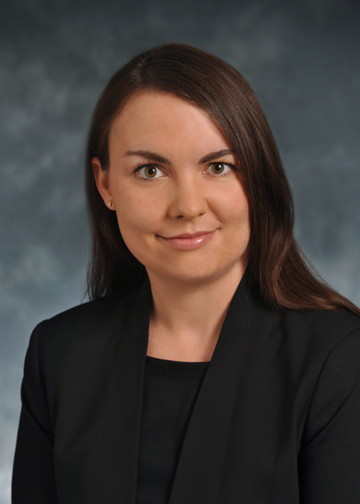By Laura Dague

I began my academic career at Texas A&M’s Bush School of Government and Public Service in 2012 after finishing my Ph.D. in economics at the University of Wisconsin. When on the job market, my academic interviews were across the spectrum, including business schools, schools of public health, and traditional economics departments. I’m now a tenured associate professor at Texas A&M and glad to share my perspective on life as a health economist in a school of public policy.
A key difference from a traditional economics department is that colleagues will not all be economists, and relative to a school of public health or medical school, they generally will not be interested in health care. The mix of disciplines will vary; most places will have economics, political science, public policy, and public administration Ph.D.s on the faculty, but I have also had colleagues from social psychology, history, and sociology as well as practitioner colleagues with experience in various public and nonprofit sector roles. It can be a challenge, since colleagues may view issues quite differently than you; these issues can be important in terms of work environment (e.g. what should determine salaries) or research (e.g. where to send a paper).
It can also be a strength, in that you might discover new research questions or ideas. Most economists probably believe to some degree in the superiority of economic approaches to many problems, but if you can’t see value in the research questions or methods of other disciplines, you are likely not a good fit for a school of public policy.
Public policy schools are typically hard money, so getting grants is nice for funding data, research assistants, teaching buyouts, or summer salary, but it isn’t directly part of the job description and doesn’t count directly for tenure. This generally means a slightly higher teaching load than in a soft money job. Most policy schools produce students with professional master’s degrees; some also teach undergraduates and PhD students. For example, our standard teaching load is a 2-2; but we have only master’s students, with small class sizes of 6-25. Health economists might be expected to teach intro economics, statistics or policy analysis courses as well as electives in health policy.
Tenure and promotion expectations will still weigh research output more heavily than teaching. At tenure time, policy schools may put greater emphasis on external letters in evaluating the research program, particularly if there are few economists on the faculty. The school’s ideas of appropriate institutions (and hence individuals) to draw letter writers from might be different from yours; it is important to get clarity from your department on this issue early on. Letter writers will explain in their letters the roles and qualities of different journals etc., but I also found it useful to educate colleagues about these things along the way. For a health economist at a policy school who wants to get tenure there, the expectation is likely a mix of economics journals, policy/health policy journals, and (probably less valued) medical journals, with the necessary distribution, quantity, and quality level dependent on the institution. There is certainly space to publish in outlets that are read by practitioners as well as academics while maintaining your identity as an economist.
Because so many issues can be context-specific, I have a strong belief in the importance of both internal and external mentors. Internal mentors are particularly important if you want to get tenure at your current job, and should not all be economists; you will need support from faculty as a whole. One way to facilitate these relationships is to ask folks for advice about things that require job-specific human capital. For example, I have a senior political scientist colleague who is a great resource on our grant proposal process. I have been fortunate to have wonderful external mentors who are proactive about sharing opportunities and advice, and peer mentoring relationships which feature mutual encouragement, celebration, and commiseration. Developing mentors can be difficult or natural depending on your personality, but at least for me has been an important part of my career that I am immensely grateful for. Don’t underestimate the value of a supportive network.
Public policy schools are a great fit for economists who are interested and engaged in the public policy practice of economics as well as the academic aspects. A major advantage for health economists is that interdisciplinary collaboration and translating research to policy are natural for us. Our research questions are often motivated by policy and informed by theory, and we have long recognized the value of the knowledge and experience of experts in fields such as medicine and law. If this resonates for you, a policy school could be a very rewarding place to work.
Laura Dague is an Associate Professor of Public Service & Administration at Texas A&M University. She has a Ph.D. from the University of Wisconsin.
